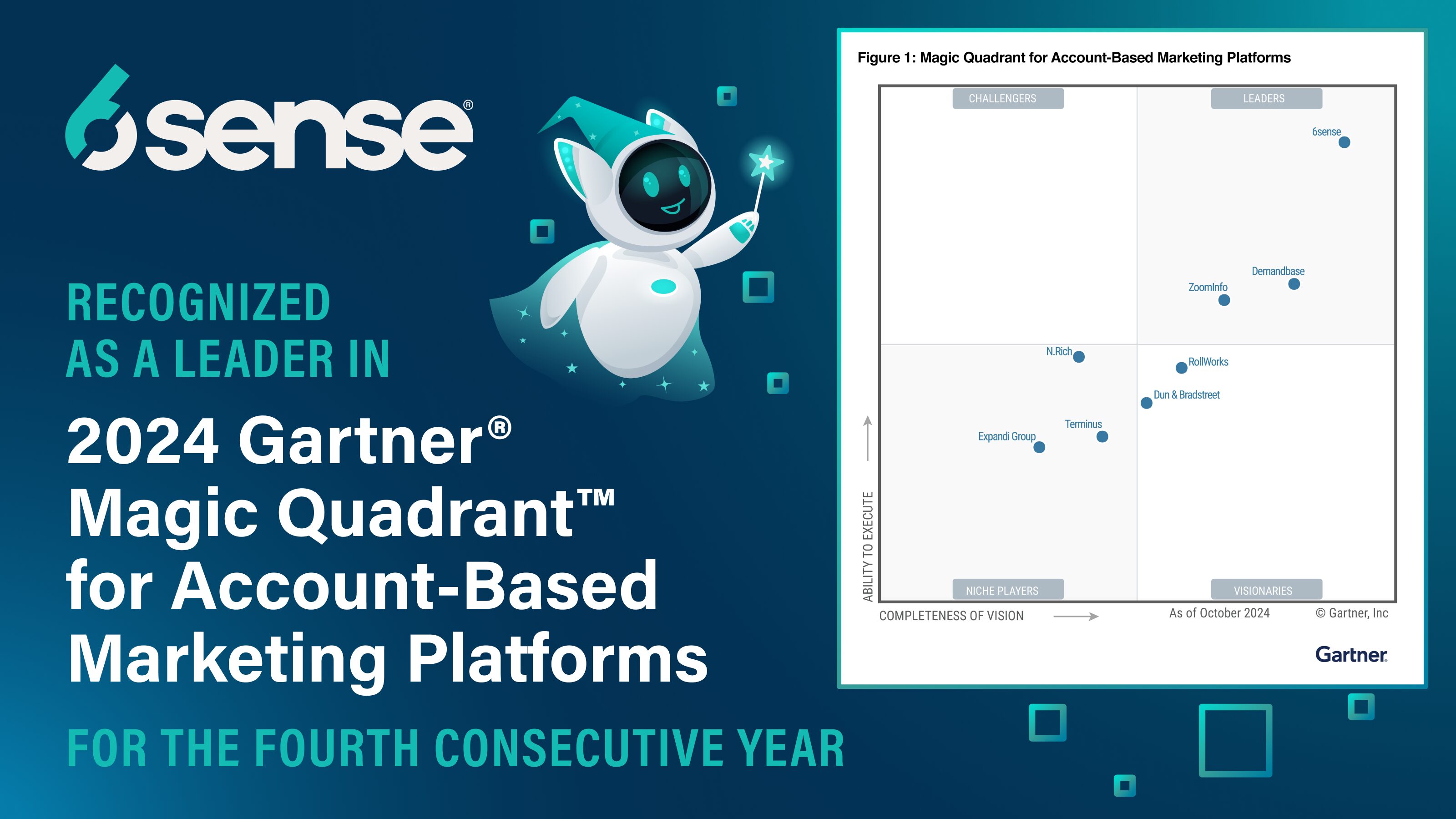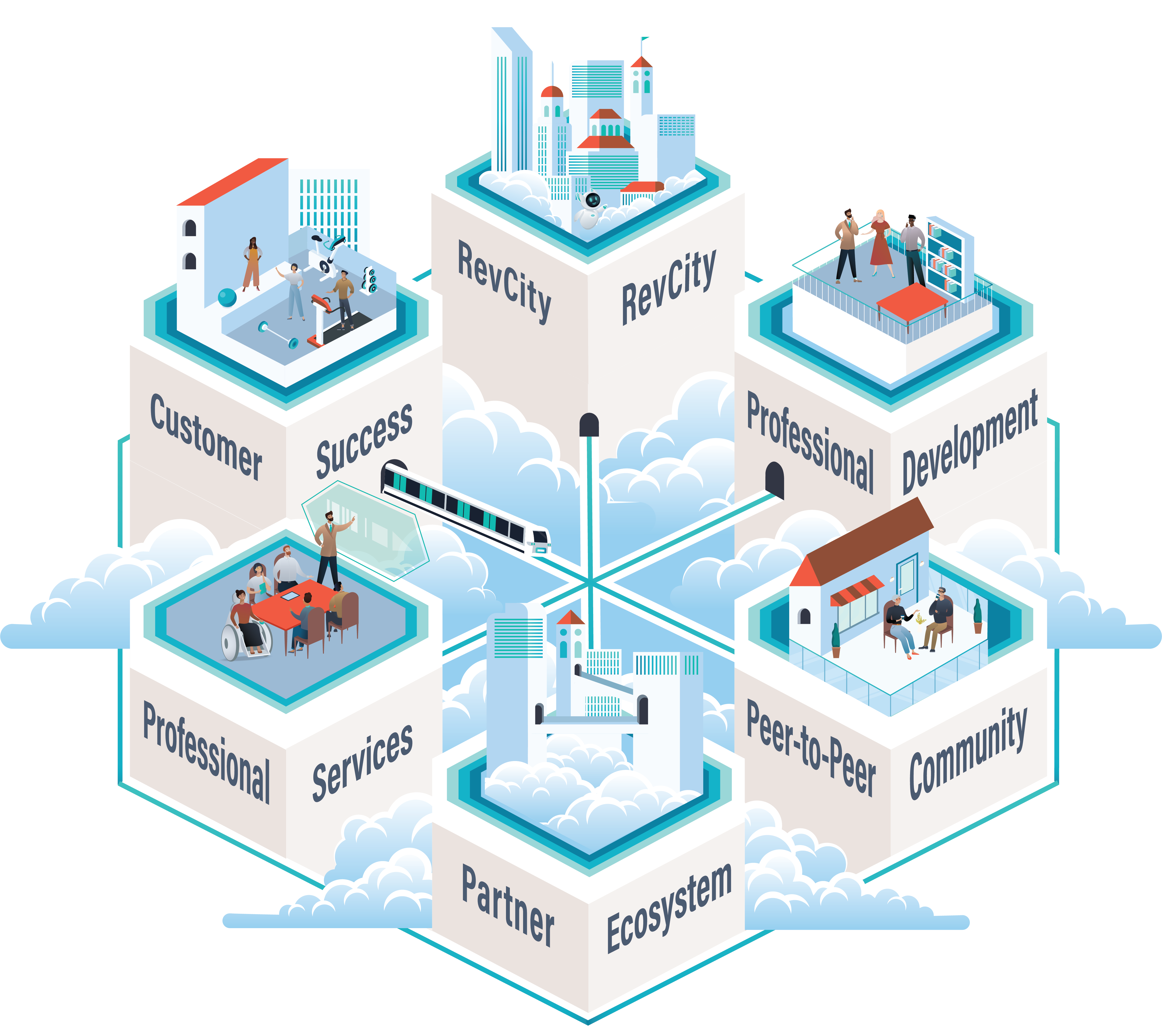Not long ago, we shared several vital highlights from a webinar with Matt Heinz (President of Heinz Marketing), Kerry Cunningham (6sense’s Senior Principal of Product Marketing), and Richa Pande (Global Head, Account Based Marketing Campaigns & Content Strategy at HP). In that chat, they offered best practices on how companies can adopt new martech solutions and get buy-in from multiple stakeholders.
We definitely recommend watching the webinar for yourself, but here you’ll find a continuation of their expert insights and plenty of advice that’ll help you facilitate successful martech adoption within your own enterprise.
Gradual Change is Best
Business leaders are often tempted to change their entire tech stacks overnight. But incremental, progressive change is likely to yield better business results, Kerry said.
“If you’re a leader and know that something’s got to change, you should be changing that,” he told webinar attendees. “Pick a territory, pick a segment where you can control some of the variables and get some experience, get some understanding, get some success stories.”
Listen and React to Feedback
But don’t let your enthusiasm undermine the process — because it is a process, and it often requires persuading many stakeholders to your point of view.
This means respectfully listening to folks who might disagree with your approach, Kerry said. There could be truths in their comments that you haven’t yet considered. And maintain a critical outlook on what your supporters say, too. Their insights may be correct about certain things, but incorrect about others.
The more clarity you can offer regarding the change and the tough questions around it, the more likely you’ll be to bring people on board.
Ultimately, the more upfront clarity you can provide — and the more willing you are to address stakeholder concerns — the more likely you’ll bring them on board.
You may also have better luck convincing stakeholders if you can link the change to a desirable business income, Richa said.
Understand that some folks in your organization just won’t be prepared for change. They may be hesitant because they’ll shoulder a burden if the proposed outcome underdelivers.
That means being especially thoughtful when listening to the opinions of stakeholders who’ll be directly affected by your proposal. They might offer a perspective you hadn’t considered and help you find a solution that’s universally helpful across your enterprise.
Cautiously Approach Product-Led Growth Strategies
Product-led growth (PLG) is a relatively new marketing and sales strategy that offers prospects access to a product through a free trial or allowing them to see it in action by performing a minor task. When properly implemented, PLG helps accelerate adoption for solution providers.
If the solution you’re considering has a free or limited trial, this might be a compelling way to show the solution’s capabilities to stakeholders. You still may experience some pushback, however; lots of companies are hesitant to approve tools that allow a limited number of uses, largely due to strict, complicated IT approval processes.
But before you give up, consider working with your IT department to develop an approval process for “try before you buy” solutions. Getting this kind of buy-in creates smoother experiences and improves your chances of getting other departments to give potential solutions a chance.
Select Tools That Provide True Value
Ultimately, enterprise-wide martech adoption requires finding a tool that everyone is willing to use. It’s hard convincing folks a tool is worth the investment especially if it’s too similar to others on the market.
So be prepared to demonstrate the following:
- What value does it bring to the enterprise?
- How does it shake up the status quo?
- Where does it fit into the big picture of the business?
“The ratio has to be just right,” Richa said. “If the value the tool creates isn’t worth the pain of changing, you won’t see that enterprise-wide scaling. You might see one group use it and have a few results that they’re sharing.”
For even more advice and in-depth conversations around enterprise-wide martech adoption, check out the full webinar.



